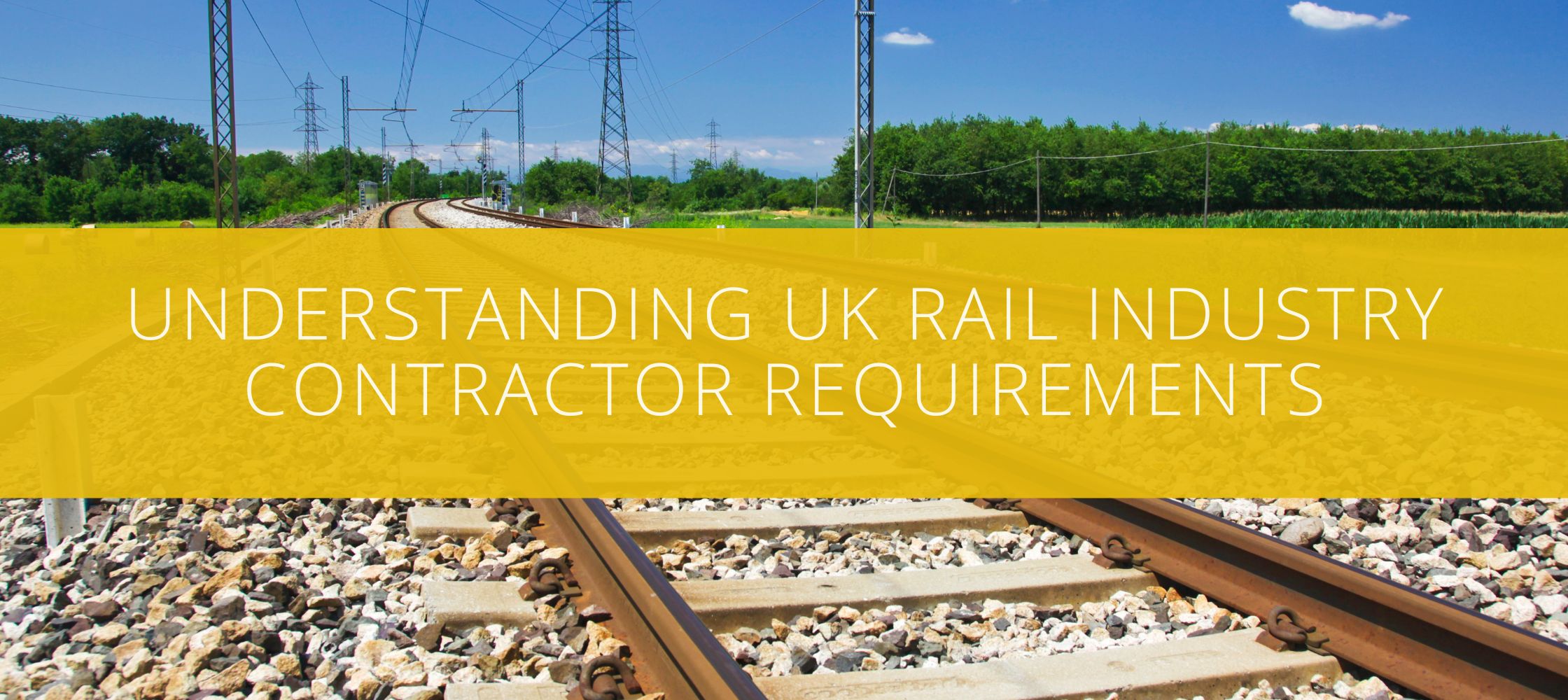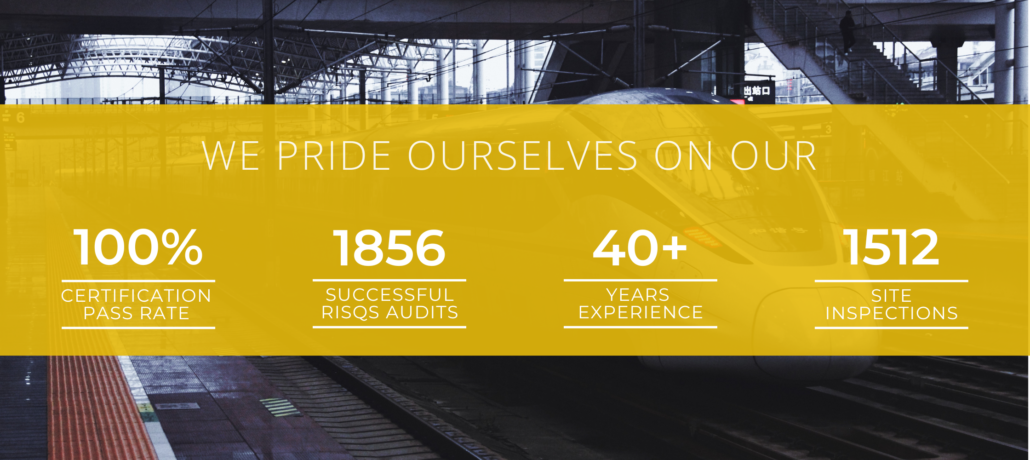Understanding UK Rail Industry Contractor Requirements
Understanding UK Rail Industry Contractor Requirements
Introduction
Embarking on the journey of becoming a contractor in the UK Rail Industry requires meticulous attention to detail, particularly in meeting the stringent UK Rail Industry contractor requirements. This endeavour presents a mix of excitement, opportunity, and challenge. Beyond mastering the fundamental requirement of RISQS certification, contractors must adeptly navigate a multifaceted landscape encompassing regulatory compliance, supply chain management, technological integration, and environmental sustainability. In this guide, we delve into essential considerations for contractors, culminating in a comprehensive examination of the Railway Industry Supplier Qualification Scheme (RISQS) and its profound significance in the industry.
Navigating Regulatory Compliance and Industry Standards
Contractors must adhere to a multitude of regulatory requirements imposed by authorities such as the Office of Rail and Road (ORR). Compliance with industry standards set by organisations like Network Rail is equally imperative, ensuring projects meet stringent quality and safety specifications. Staying abreast of evolving regulations and standards is essential for maintaining legal and ethical operations within the rail sector.
Mitigating Risks through Insurance Coverage and Liability Management
Robust insurance coverage, including public liability, professional indemnity, and employer’s liability insurance, is indispensable for mitigating risks and liabilities associated with rail projects. Contractors must implement comprehensive risk management strategies to safeguard against unforeseen incidents and protect both themselves and their clients throughout project lifecycles.
Optimising Supply Chain Management
Effective supply chain management is vital for ensuring seamless coordination and timely delivery of materials in rail projects. Contractors must cultivate strong relationships with suppliers and subcontractors, fostering collaboration and adherence to contractual obligations. Streamlining supply chain processes enhances project efficiency and minimises disruptions, ultimately contributing to successful project outcomes.
Leveraging Technology and Innovation
Embracing technology and innovation can bolster contractors’ competitiveness and project efficiency within the rail industry. Integrating advanced technologies such as Building Information Modeling (BIM), drones for surveying, and digital project management tools enhances productivity, accuracy, and collaboration among project stakeholders. Innovations in construction methodologies and materials further optimise project delivery and resource utilisation.
Investing in Workforce Competency and Training
Contractors must prioritise investment in workforce competency and training to maintain a skilled and qualified workforce. Ongoing training programs ensure employees remain abreast of industry best practices, regulatory requirements, and emerging technologies. Enhancing workforce competence enhances safety, productivity, and overall project performance, driving operational excellence.
Championing Environmental Sustainability Practices
With sustainability becoming increasingly paramount, contractors must integrate eco-friendly practices into their operations. Implementing sustainable practices, such as utilising environmentally friendly materials and minimising waste generation, aligns with industry trends and regulatory requirements. Embracing sustainability not only reduces environmental impact but also enhances reputation and stakeholder trust.
Understanding the Significance of RISQS
At the core of contractor qualification in the UK Rail Industry lies the Railway Industry Supplier Qualification Scheme (RISQS). Managed by the RSSB, RISQS serves as the industry’s benchmark for supplier assurance, ensuring contractors meet rigorous standards of safety, competence, and compliance. Achieving RISQS qualification enhances contractors’ credibility, marketability, and access to contracting opportunities within the rail sector. Furthermore, RISQS certification demonstrates a contractor’s commitment to safety, quality, and regulatory compliance, instilling confidence among clients and industry stakeholders.
Summary of RISQS Requirements:
Health and Safety Compliance:
Contractors must demonstrate compliance with strict health and safety regulations to ensure the well-being of workers and the public. This includes implementing robust safety protocols, conducting risk assessments, and providing appropriate training to personnel.
Competency Assessment:
RISQS evaluates contractors’ competency in delivering their respective services. This involves verifying qualifications, certifications, and relevant experience to ensure contractors possess the necessary skills and expertise for their roles.
Quality Management Systems:
Effective quality management systems are essential for maintaining high standards of service delivery. Contractors must demonstrate their ability to consistently meet customer requirements, adhere to industry standards, and continuously improve their processes.
Environmental Management:
Contractors must implement environmental management systems to minimise their environmental impact and comply with environmental regulations. This includes measures to reduce waste, conserve resources, and mitigate pollution associated with rail projects.
Supply Chain Management:
RISQS assesses contractors’ supply chain management practices to ensure the integrity and reliability of the supply chain. Contractors must demonstrate their ability to select competent suppliers and subcontractors, monitor their performance, and address any issues that may arise.
Business Continuity Planning:
Contractors must have robust business continuity plans in place to ensure the uninterrupted delivery of services in the event of disruptions or emergencies. This includes contingency plans for addressing risks such as equipment failures, natural disasters, or workforce shortages.
Ethical and Legal Compliance:
Contractors must adhere to ethical standards and legal requirements in their business practices. This includes complying with anti-corruption laws, respecting intellectual property rights, and conducting business with integrity and transparency.
Continuous Improvement:
RISQS encourages contractors to embrace a culture of continuous improvement to enhance their performance and efficiency. Contractors should regularly review their processes, solicit feedback from stakeholders, and implement corrective actions to address areas for improvement.
Unlock Your Path to RISQS Accreditation with Simpson Consultancy
As you navigate the complexities of becoming a contractor in the UK Rail Industry, Simpson Consultancy stands ready to support you on your journey. Our RISQS accreditation service ensures that you meet the stringent requirements of the Railway Industry Supplier Qualification Scheme, positioning your business for success in the rail sector. Contact us today for a free, no-obligation quote, and let us guide you towards RISQS accreditation with confidence and ease.







